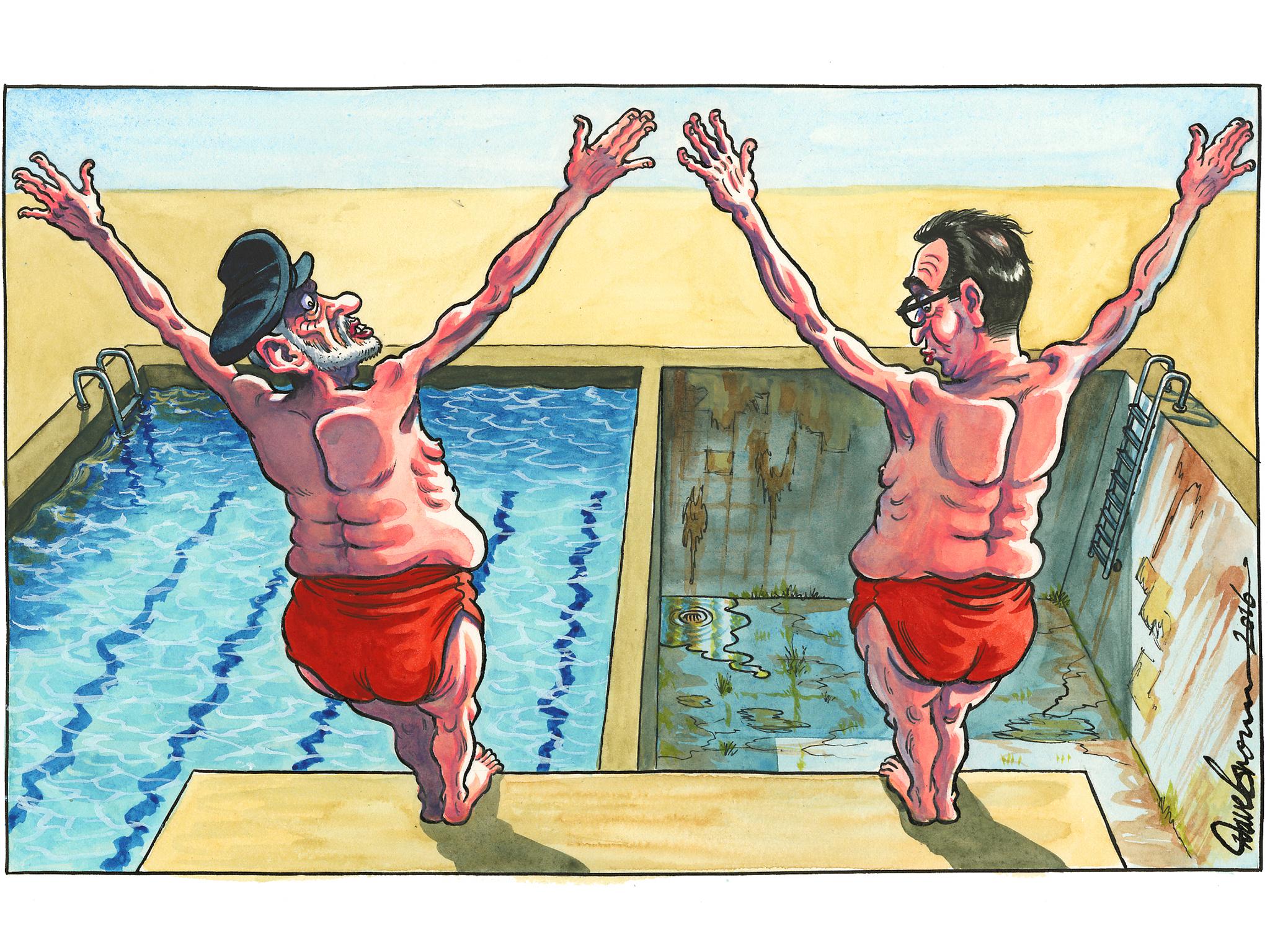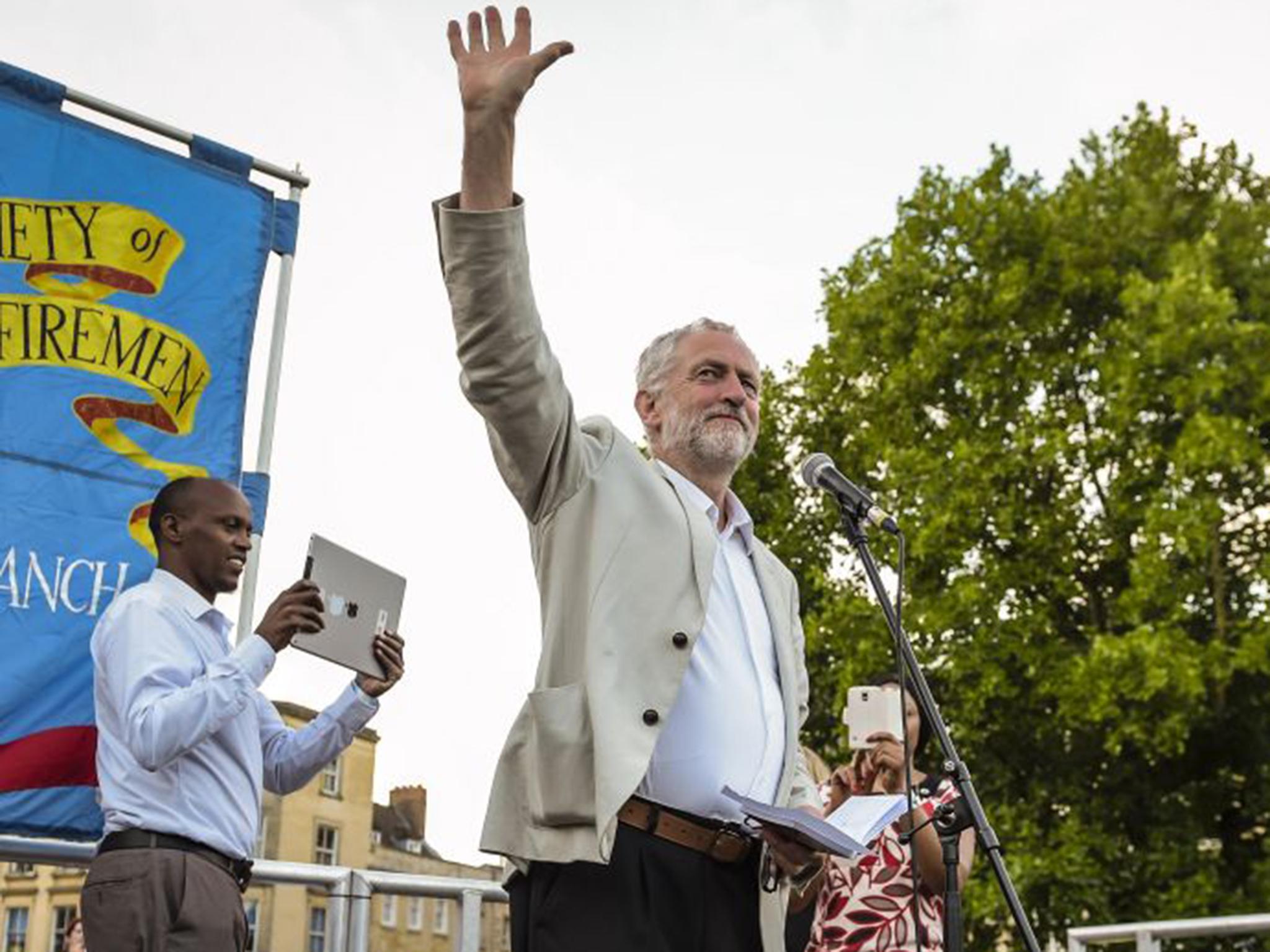If Jeremy Corbyn is to be defeated, it should be by debate not by a fix
Labour members need to think not just about whether Mr Corbyn’s policies are palatable to the general electorate, but whether it is possible for a leader to function with the active support of fewer than one fifth of the party’s MPs

It is an irony that the “bourgeois courts”, as one supporter of Jeremy Corbyn described them this week, have come to the rescue of his leadership of the Labour Party. In the 1980s, the courts upheld the right of the party to expel entryists. Then, the party was more or less united against Militant.
This time it is more serious, as the courts have been asked to adjudicate between the party’s leader and most of its members on the one hand and its general secretary, Iain McNicol, on the other. Mr McNicol is acting in turn on behalf of Labour’s National Executive Committee, itself split down the middle.
First, a court ruled two weeks ago that Mr Corbyn was entitled to be a candidate in the leadership election that was triggered by Owen Smith’s challenge. Then a court ruled this week that the National Executive was wrong to exclude members who been members for less than six months. (To be strictly accurate, what the party did wrong was to say in its recruitment publicity on its website that members were entitled to vote in leadership elections, without an asterisk adding that terms and conditions applied.) That means that the 130,000 members who joined this year can vote, and those of them who signed up as registered supporters in order to keep their right to vote are entitled to their £25 back.
The National Executive (or a subcommittee thereof) is appealing against the court’s decision. This is unwise. Whatever the law, the spectacle of a Labour Party fighting its civil war through the courts is unedifying, and the politics is on Mr Corbyn’s side for the moment. He has the support of the majority of Labour’s vastly expanded membership. As long as they want him, he is entitled to the leadership.
Those Labourites who say that Mr Corbyn is the wrong person to lead the party have to beat him through argument, rather than by fixing the vote. Some of Mr Corbyn’s supporters may be entryists who do not have Labour’s interests at heart, but most of them are enthusiasts for policies that they believe in.
The Independent is sceptical about Mr Corbyn’s appeal to the wider electorate, and was bitterly disappointed with the Labour leader’s refusal to campaign with any conviction for Britain to stay in the European Union. But it is up to Mr Smith – as it was up to Liz Kendall, Yvette Cooper and Andy Burnham before him – to persuade Labour members that Mr Corbyn is the wrong person to lead them into the next election.

Speaking of Mr Burnham, we congratulate him on winning the nomination to be Labour’s candidate for mayor of Greater Manchester, but note that his departure from the party’s House of Commons leadership is not a good sign for Labour nationally. Whatever his limitations, no one can deny his ambition, and for Mr Burnham to decide that his future lies outside the Parliamentary Labour Party suggests that he does not expect his party to be in government soon.
That ought to prompt Labour Party members to think again about Mr Corbyn. This is not just a matter of whether Mr Corbyn’s policies are palatable to the general electorate, but of whether it is possible for a leader to function with the active support of fewer than one-fifth of the party’s MPs.
This week’s elections of constituency party representatives to the National Executive suggest that Labour members are divided about 60-40 between Mr Corbyn’s supporters and his opponents.
Mr Corbyn is likely to be re-elected by a larger margin next month, but that will settle nothing. If Theresa May engineers an early general election, which is quite possible, that would probably be the end of him. If she carries on until 2020, Mr Corbyn would probably succumb to his internal opponents before then.
Fortunately, Mr Corbyn believes in annual leadership elections, so the mandate of which he boasts has to be put to the test repeatedly. But it should be done by comradely debate, not abuse and intimidation, and not by the kind of attempted fix that opens the party to court action.


Join our commenting forum
Join thought-provoking conversations, follow other Independent readers and see their replies